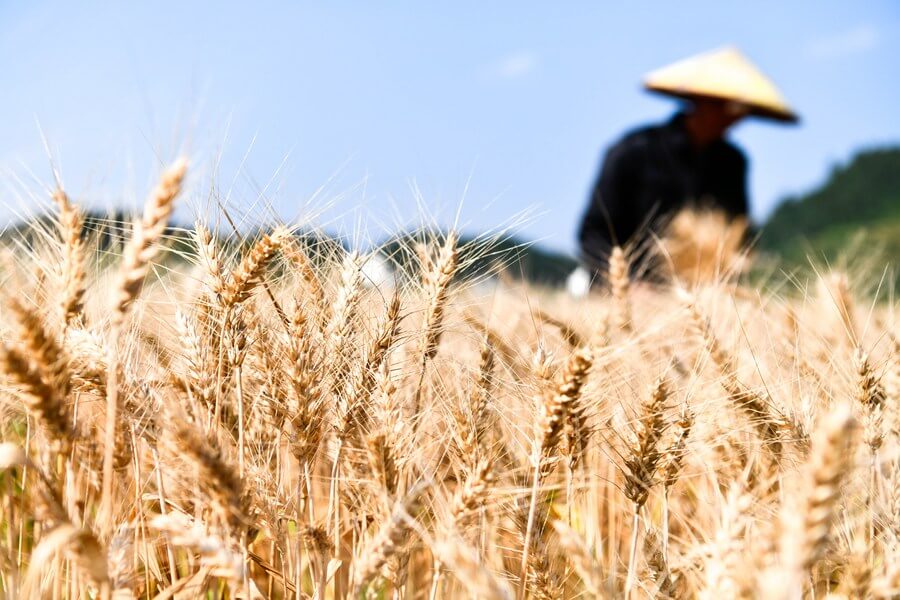The Food Security Law of 2023 in China, enforceable from June 1, 2024, represents a significant step forward in the nation's efforts to ensure sustainable and secure food supplies for its population against a backdrop of global uncertainties and domestic challenges. This law touches upon various aspects of food security, from production, distribution, and reserves to emergency management and legal liabilities, reflecting the comprehensive approach China is taking to address food security concerns.
This notification was timely identified and is available to users through the SGS Digicomply Regulatory Agenda. Feel free to get in touch now to learn about implementing the Regulatory Intelligence Hub for your company. Or explore the demo and try this tool in action.
Strategic Focus on Agricultural Production and Sustainability
Central to the law is the preservation of cultivated land dedicated to grain production, alongside measures such as the implementation of crop rotation and fallow periods. This not only aims at preserving soil health but also at enhancing grain yields and quality. The law mandates financial support for grain production, illustrating a significant commitment to bolstering food self-sufficiency. This includes subsidies and incentives aimed at enhancing the comprehensive capacity of grain production areas and improving the income and enthusiasm of grain producers.
The establishment of "grain production functional areas" and "important agricultural production protected areas" underlines a strategic approach to safeguarding key agricultural zones. These areas are designated to prioritize and enhance grain production through targeted support and guidance, ensuring the efficient use of agricultural resources.
Grain Reserve System: A Pillar of Food Security
A pivotal component of the law is the establishment of a government grain reserve system, comprising both central and local reserves. This system is designed to stabilize the grain market and buffer against supply shocks. Detailed regulations govern the purchase, sale, rotation, and use of these reserves, emphasizing the importance of maintaining quality and quantity to secure the nation's food supply.
Enhancing Grain Circulation and Market Stability
The law recognizes the critical role of market mechanisms in ensuring food security. It strengthens grain market management, emphasizing fair competition and market order. The State's role in regulating and controlling the grain market is reinforced, with provisions for policy-based purchases and storage to maintain market stability. Furthermore, the law addresses the construction and protection of grain storage and logistics infrastructure, enhancing the efficiency of grain circulation.
Quality Assurance and Emergency Response
Grain quality and safety are paramount, with stringent standards and monitoring systems in place for grain processors. An emergency management system for grain is established to address potential crises, ensuring preparedness and effective response to disruptions in grain supply.
Conservation, Supervision, and Legal Framework
The law promotes grain conservation and opposes wasteful practices, highlighting the importance of efficient use of resources from production to consumption. It establishes a robust supervisory framework for overseeing compliance with food security measures, emphasizing accountability and transparency.
A detailed legal liability framework outlines penalties for non-compliance, underscoring the seriousness with which China views its food security challenges. From fines to criminal responsibilities, the law ensures that violations have consequences, reinforcing the commitment to maintaining the integrity of the nation's food security system.
Conclusion
The Food Security Law of 2023 in China is a landmark legislation that addresses the multifaceted aspects of food security in a holistic manner. By focusing on sustainable agricultural practices, strategic grain reserve management, robust market regulation, and stringent quality control, alongside a clear legal framework, China aims to secure its food supply against both current and future challenges. This comprehensive approach not only underscores the importance of food security in national policy but also sets a precedent for global food security governance.
For more detailed inquiries, stakeholders can reach out directly to the legislative body of the People's Republic of China, the National People's Congress (NPC), or utilize the SGS Digicomply platform for comprehensive insights and updates. Feel free to get in touch now to learn about implementing the Regulatory Intelligence Hub for your company. Or explore the demo and try this tool in action.






.webp?width=1644&height=1254&name=Food%20Safety%20Dashboard%201%20(1).webp)
